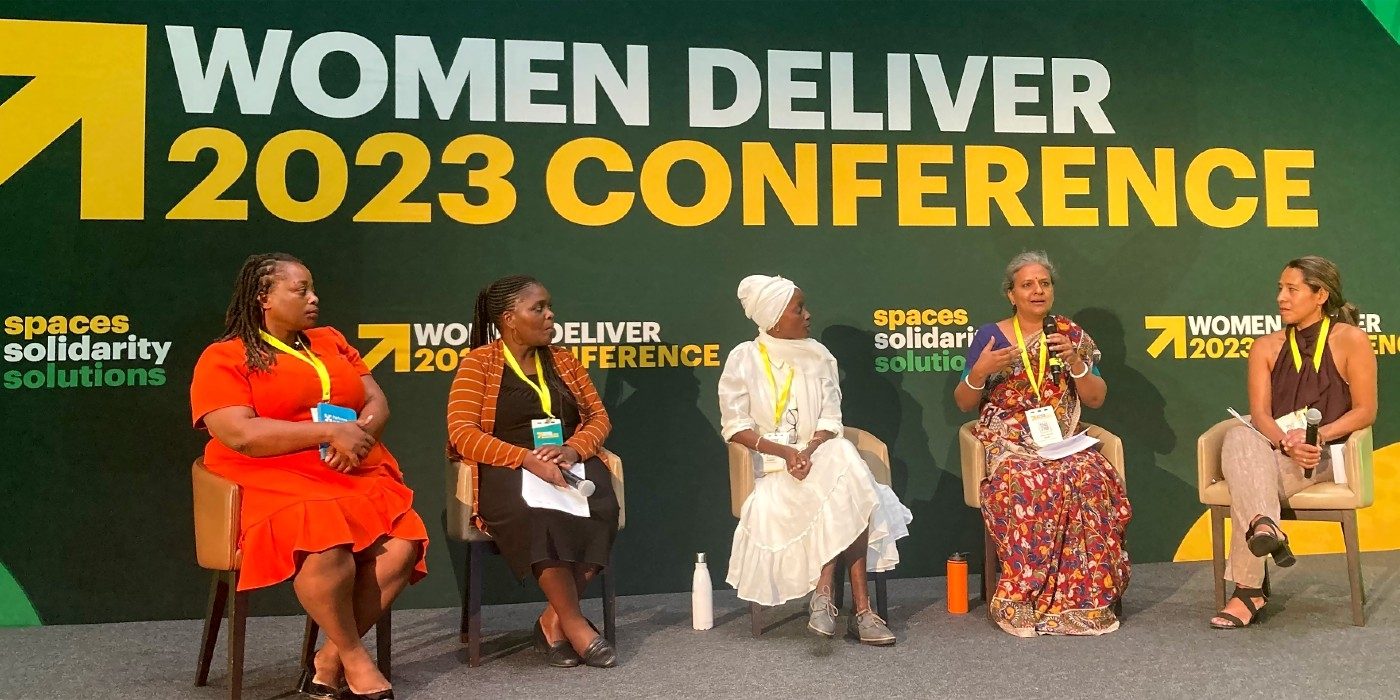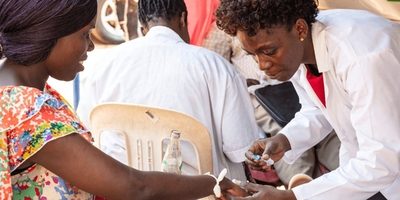
Intersectionality and shared accountability in addressing deep-rooted gender biases is key to advancing gender equality: Reflections from Women Deliver 2023
Women Deliver 2023 (WD2023) brought together over 6000 delegates from all across the globe to Kigali, Rwanda, from July 17 to 20, to discuss and collectively advance action towards gender equality. We were delighted to have had the opportunity to meet and connect with feminist leaders, advocates, and practitioners from across the world. But, this was also the time when news uncovering stories of violence against women was emerging from different parts of India. It was unsettling to sit through sessions addressing the theme of gender-based violence while scrolling through the news reporting on rampant violations of human rights in our home country.
Luminaries from governance and activism, including Heads of State from Africa and beyond, a Nobel laureate, and others collectively set the tone of the conference during the inaugural ceremony, emphasising the importance of co-creating inclusive and accessible spaces for all, sharing lessons and learnings across countries, strengthening women’s representation and leadership in political decision-making among other imperatives as guiding principles to achieve gender equality. Broadly, the inaugural panel recognized the need for addressing gender inequality at its root. In this light, Paul Kagame, the President of Rwanda said:
We must challenge ourselves to do things differently for gender equality and with a sense of urgency. Much more needs to be done to tackle gender biases deeply embedded in our political, economic, and social systems.
Intersectionality in general and with respect to addressing health rights and needs of women including gender minorities was central to all the sessions we attended. Rightfully so as advocacy, practice, and research on advancing women’s rights are incomplete without recognising and addressing inequalities at the intersections of gender and sexual identity, race, caste, economic conditions, and various other backgrounds and lived experiences. This was reflected during discussions around Universal Health Coverage (UHC) and financial inclusion responsive to the needs of the LGBTQIA+ community, integrated approach to addressing gender-based violence and sexual and reproductive rights, accountability of the state to protect the rights of women workers in the informal economy and sex work, and menstrual justice, among others. We could see representatives from the LGBTQIA+ groups demanding serious accountability from all actors involved in the policy space to be cognizant of their rights and needs while designing and implementing policies. On similar lines, the session Feminist solutions to addressing gender inequities in NCD prevention and control co-hosted by The George Institute for Global Health and the NCD Alliance underscored the need for prioritising women’s health beyond the reproductive years. The George Institute participated in the panel Taking stock towards building a more equitable, noncommunicable disease-ready health system, drawing attention to the nature of NCDs, particularly the imperative to use an intersectionality lens in understanding the experience of NCDs in diverse populations, research needs, and community interventions to address NCD-prevention and management.
Researchers, decision-makers, policy implementers, service providers, community representatives, and survivors of violence were among the presenters at the sessions. Noteworthy were the Quiet Room and Wellbeing Lounge set up at the conference to allow space for ‘self-care’ for all the delegates. This was quite useful for us to recharge our social batteries amidst the rush to keep up with attending sessions and conversations. The plenaries and the closing ceremony were marked by passionate plain-speaking – presenters and panelists frequently called a spade a spade, and sometimes made perfunctory apologies for their language!
It was fulfilling to see narratives, voices, and stories from the Global South taking centrestage at sessions and discussions as rooms were buzzing with cheer and reverberating solidarity. Government decision-makers and feminist advocates seemed to be actively joining hands on the agenda of advancing gender equality. However, it will be important to monitor how much of the solidarity and accountability promised by decision-makers present at the conference translates into action. As researchers working on social determinants of health and women’s health, a key takeaway from the conference for us was the significance of locating intersectionality at the heart of what we do. Additionally, being allies to women’s groups and feminist movements means that our research contributes meaningfully to questioning and addressing structural injustices that are at the root of gender inequality.


